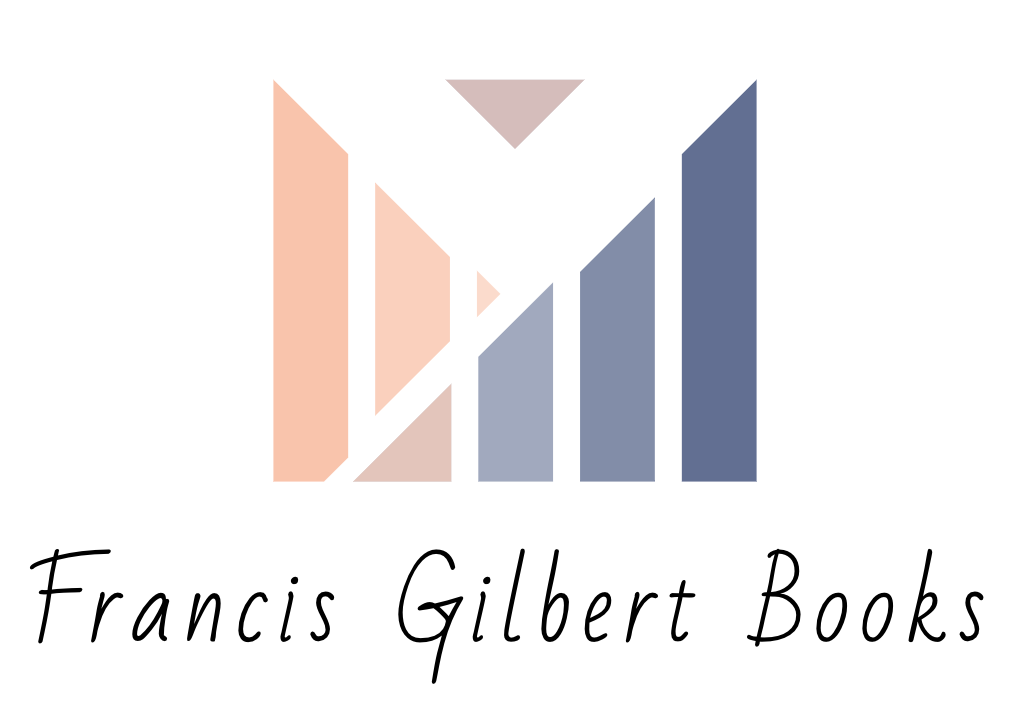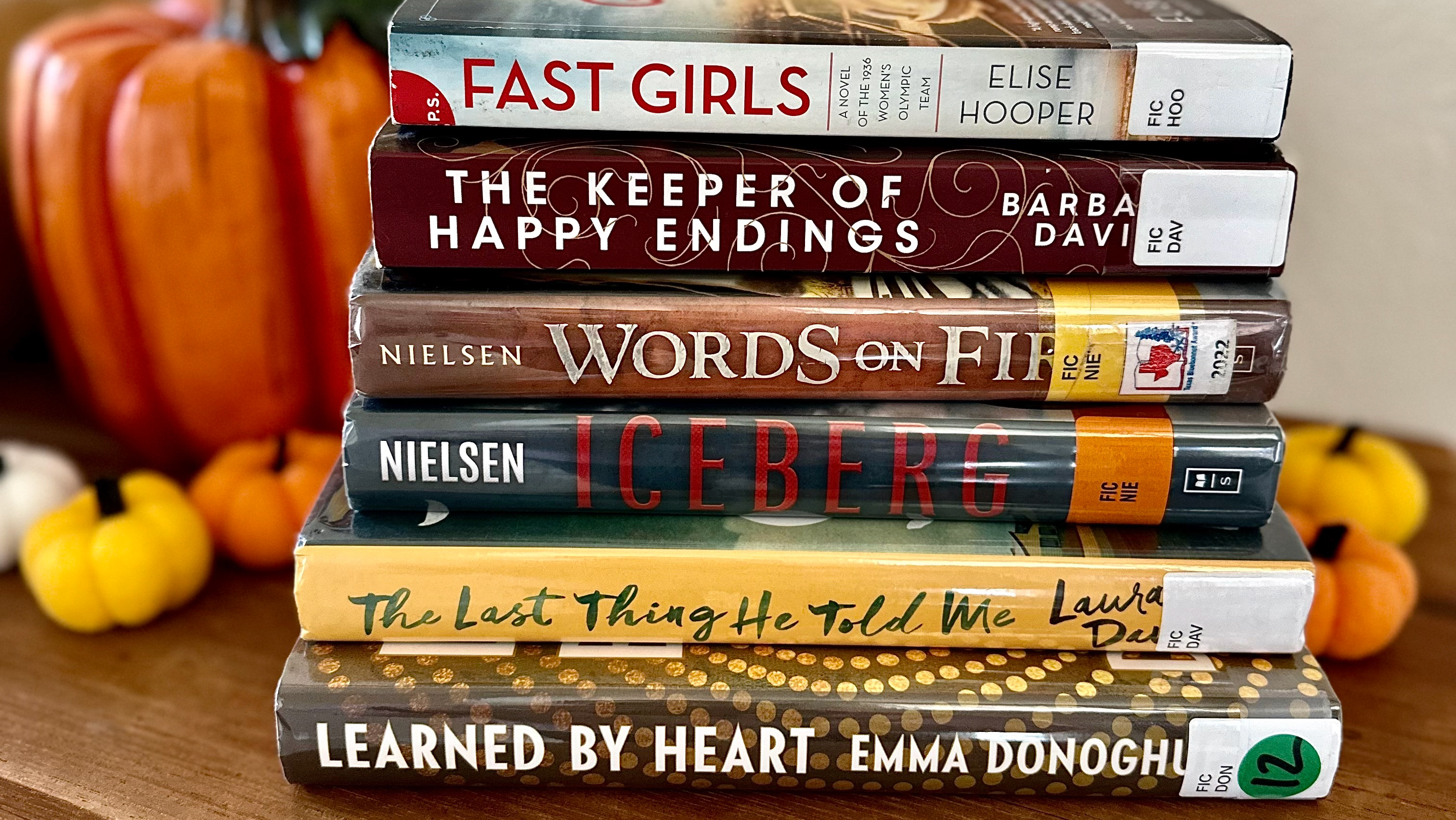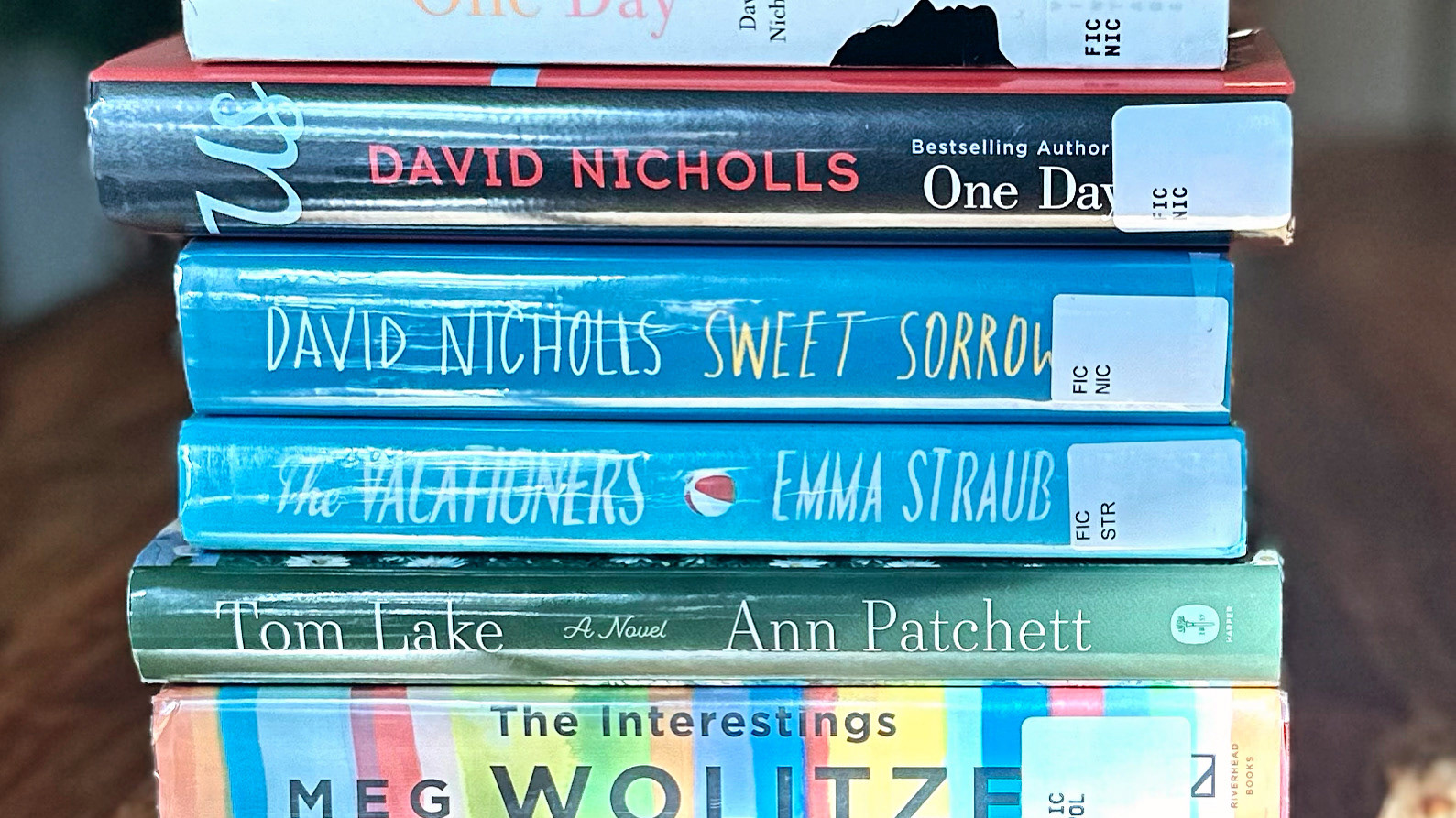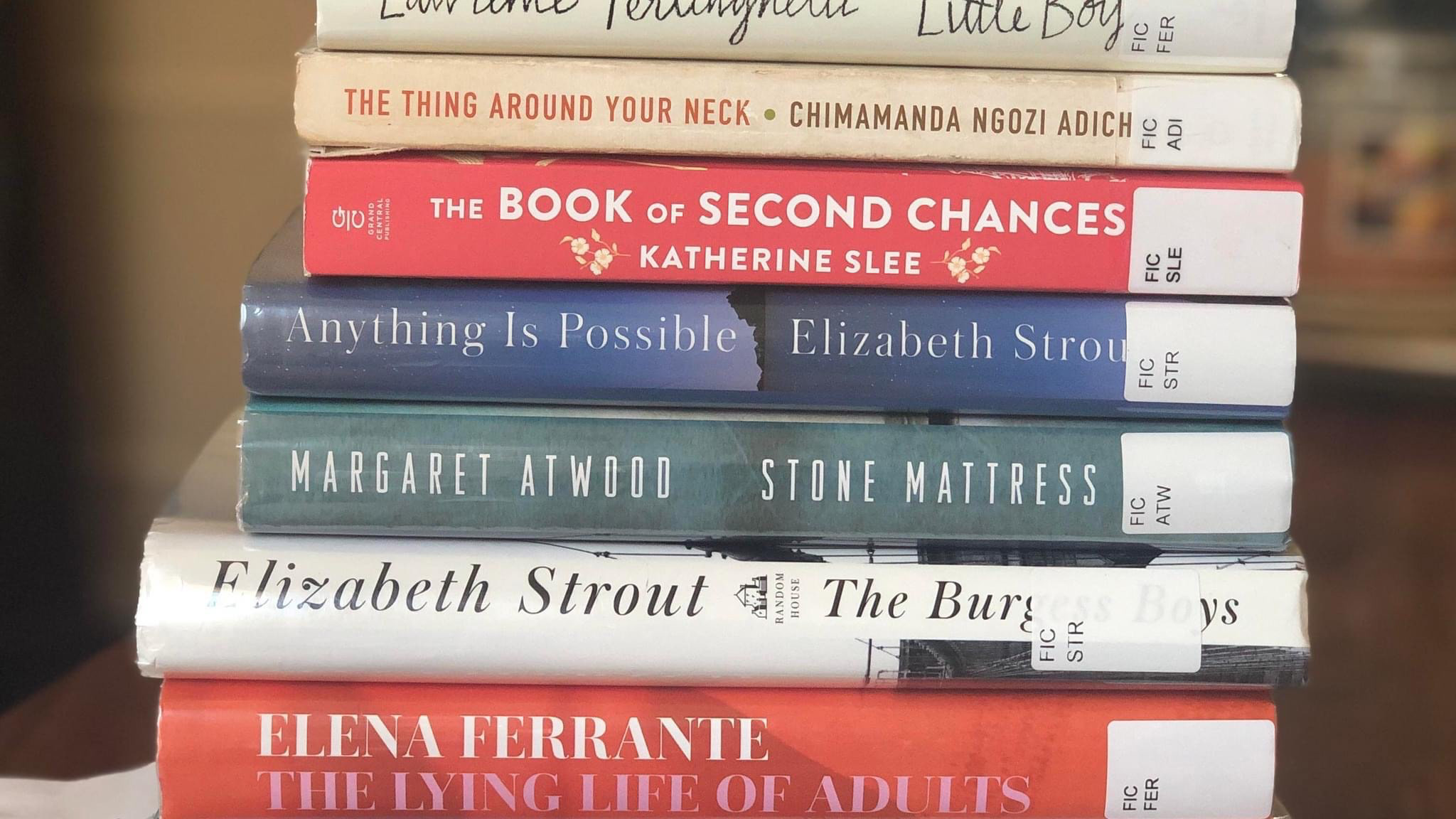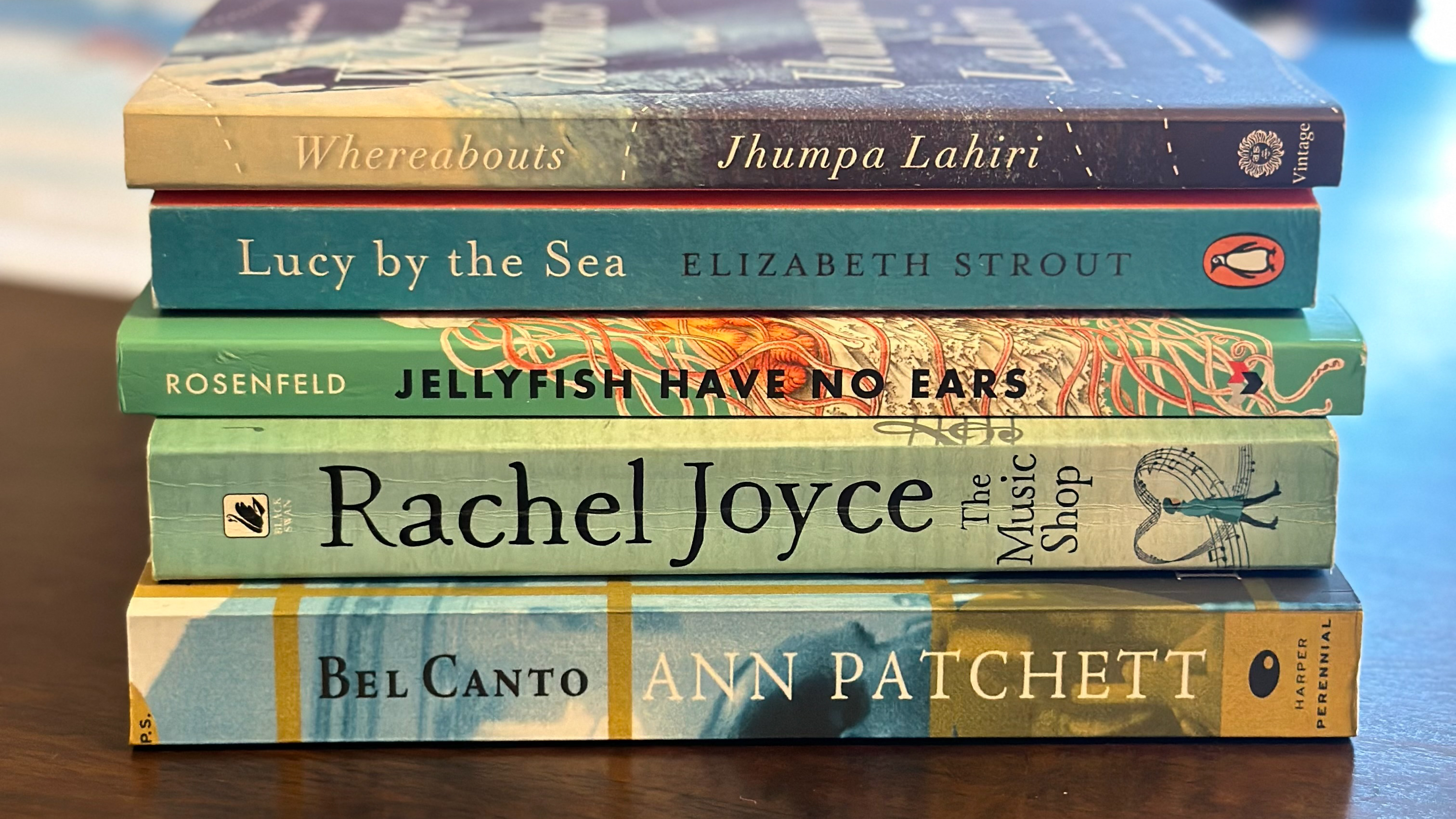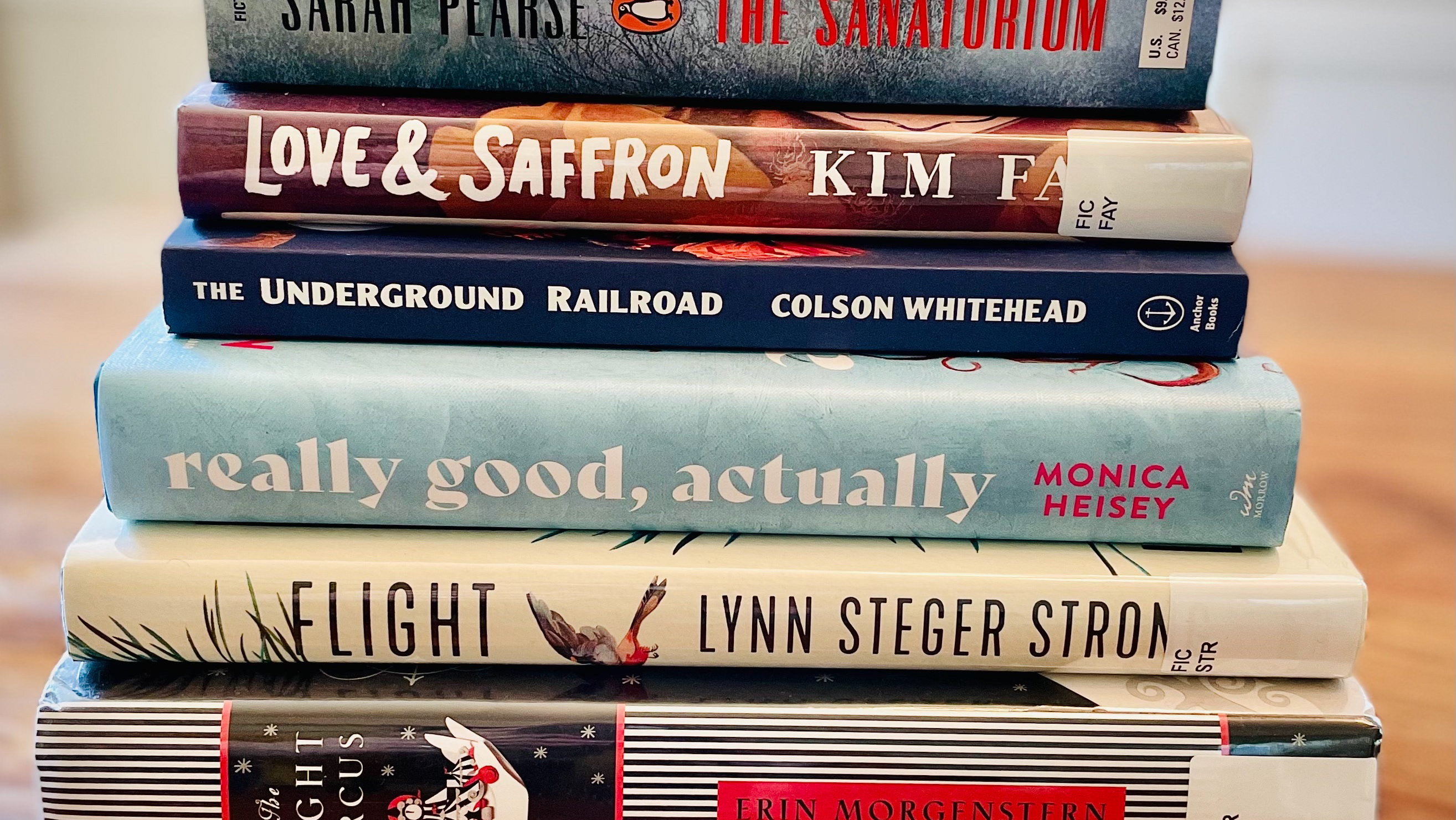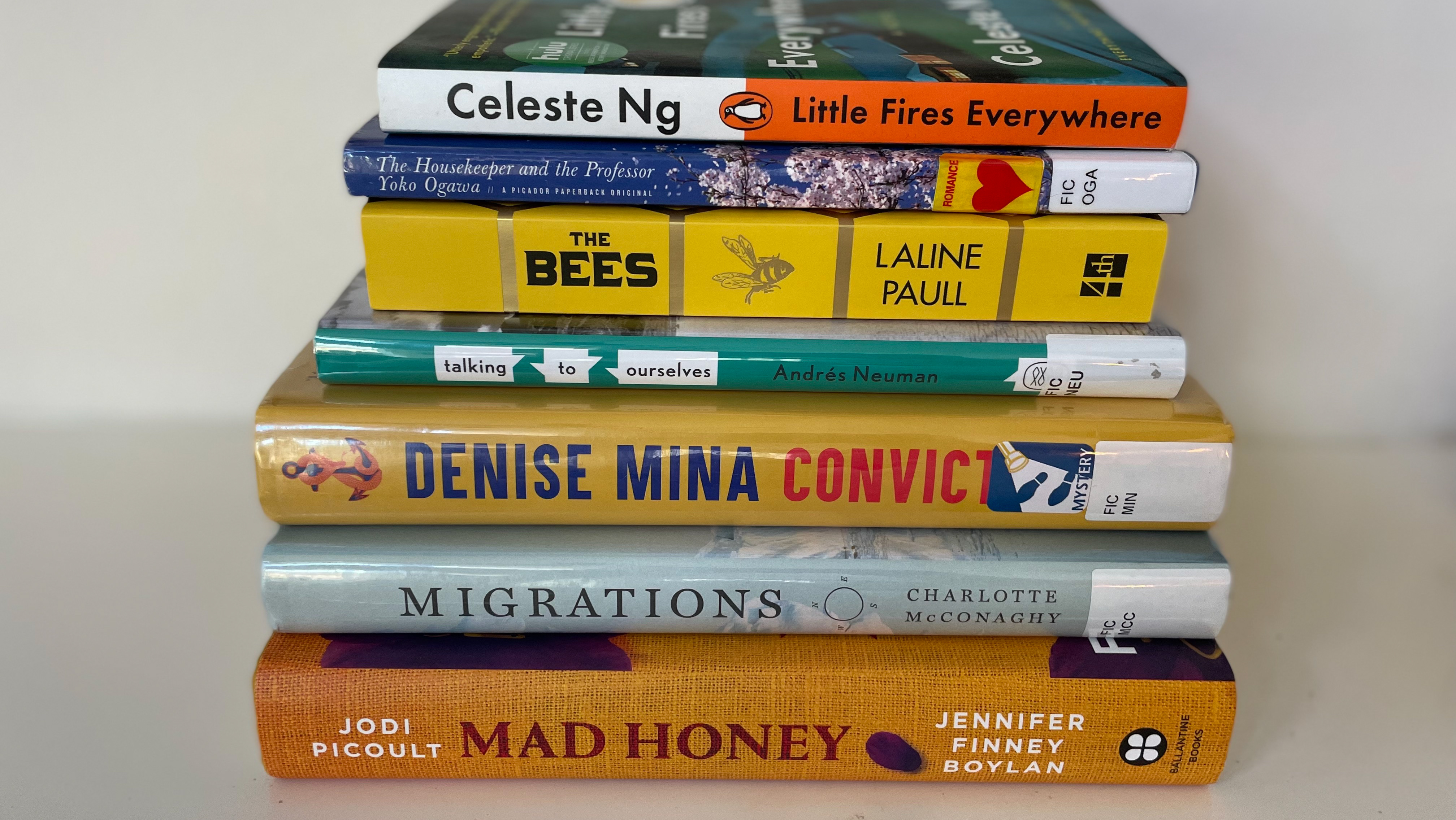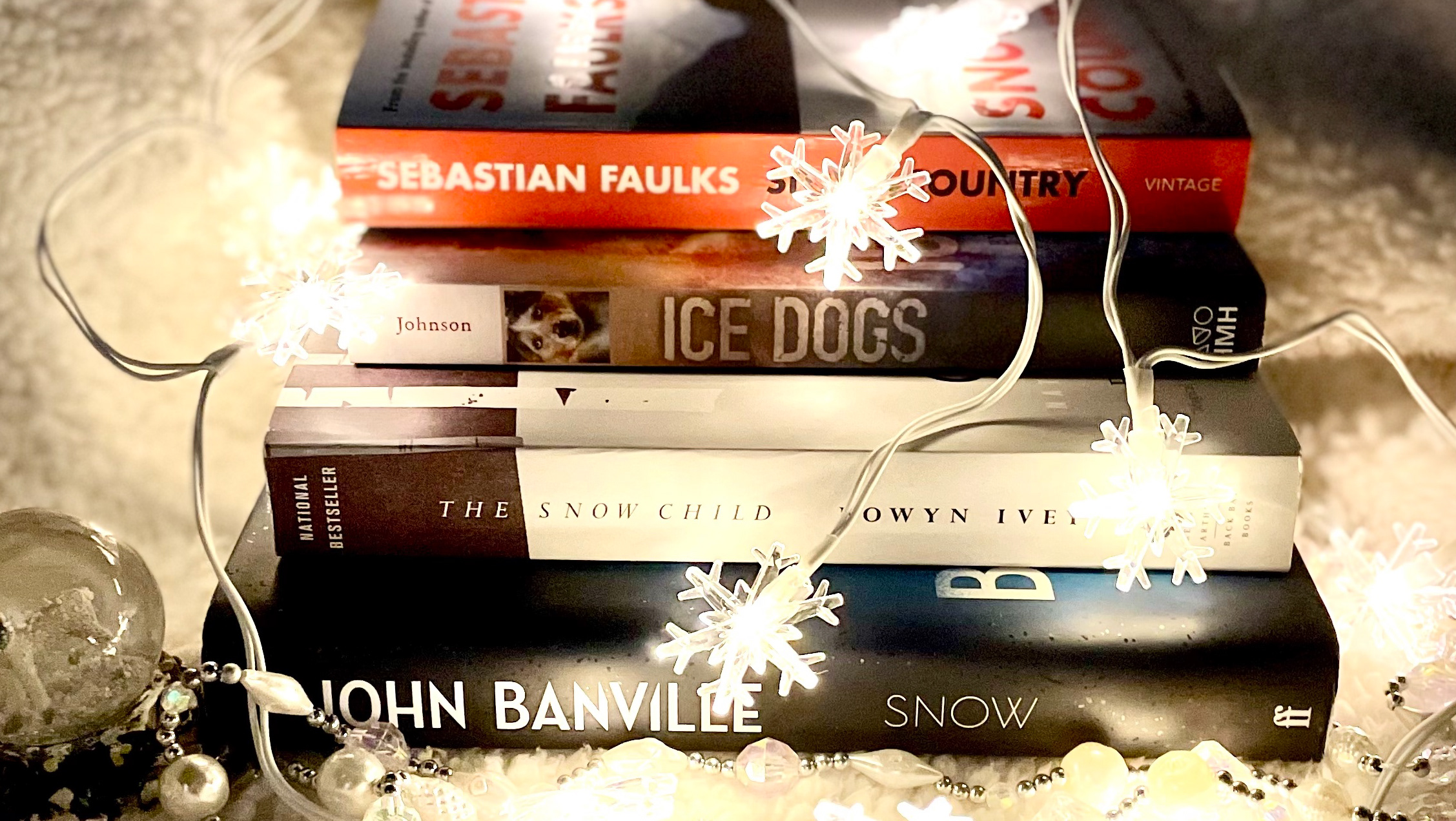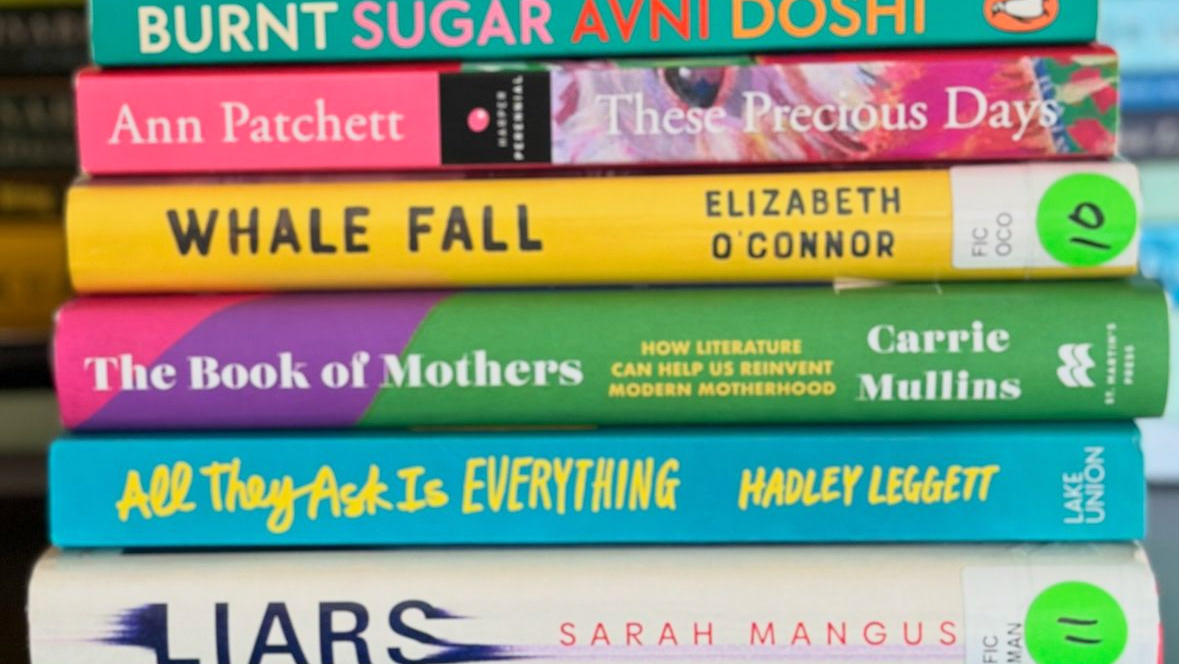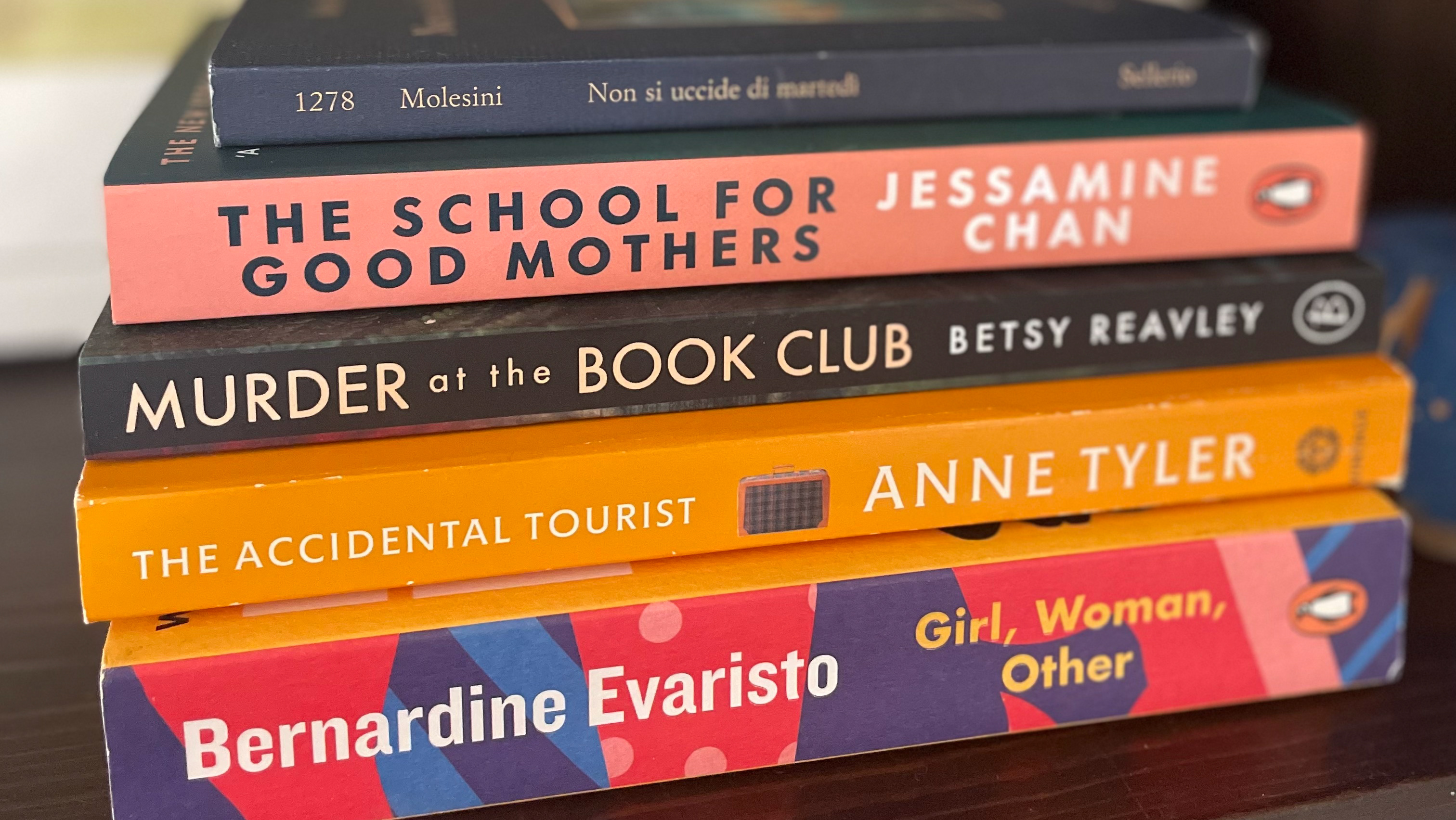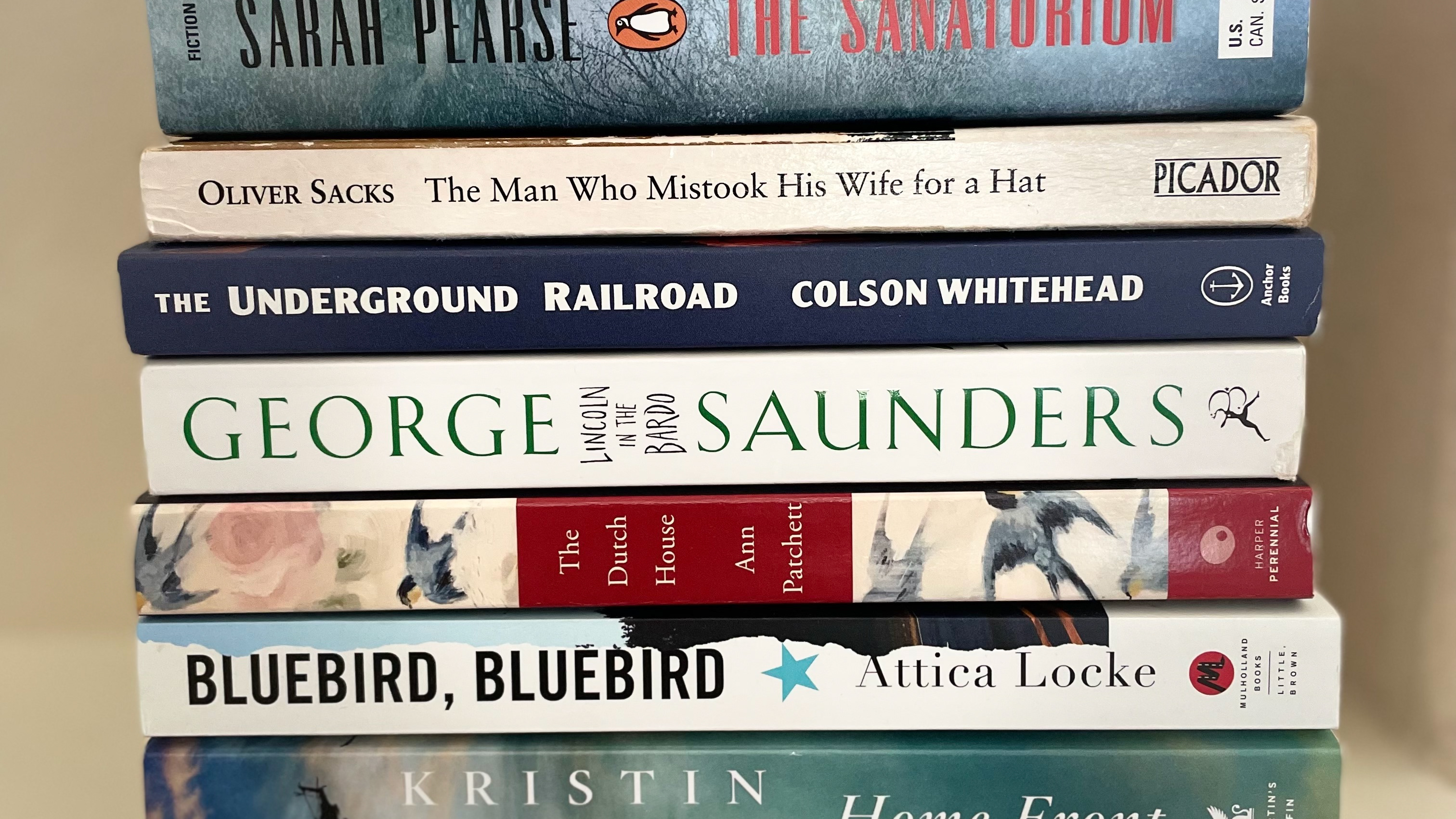-
Tomorrow, and Tomorrow and Tomorrow by Gabrielle Stevin
Goodreads Review
Bookshop affiliate link
review by Christina Francis-Gilbert
How it all began by Penelope Lively
This collation of mixed narratives holds storytelling as its connecting theme. It's also an exploration of how lives of distinctly different people intersect through chance incidents.
The novel opens with a mugging of an elderly lady Charlotte, which means she must reside with her daughter Rose and her husband Gerry, meaning Rose cannot attend a work conference with her boss Lord Henry, thus he must go with his niece Marion who sends a message to cancel a date with Jeremy who is cheating on his wife Stella, who finds out, thus wanting a divorce ... and so on.
These normal, relatable characters are simple and understandable in their actions. We are drawn along with them with woven interior monologue of characters making their decisions based on what life has dealt them.
One character who steals the show is Anton, a Polish 'economic migrant' learning English with Charlotte as his teacher. His observations of language, life and what is right is charming and he is a beautiful optimistic voice in the novel. His stilted dialogue as he gradually unpicks English expressions and colloquialisms is also a cute highlight in the plot.
Themes include money, social status, love and responsibility.
I do love Lively's choice of topics and I value how she uses simple questions to form a skeleton structure for her character studies. As much as I enjoy happy endings, the way Lively confirms that the novel is an open-ended construct is superb. She sends her characters and their storylines off on their natural journeys in various directions...just like life!
review by Christina Francis-Gilbert
Haven by Emma Donoghue
Set in 7th century Ireland and from the perspectives of three men, this is a story I knew and anticipated would feel strange and distant from my usual empathic reading experiences. Yet, Emma Donoghue's writing style is so strong I was led to feel at one with her male religious characters and the strife they faced in challenging lonely circumstances.
The novel is a wondrous, encompassing read and it enabled me to view much about religion, nature and the power of isolation in a new way.
The three male protagonists, a scholar, a priest and a younger monk set off on a pilgrimage, following a dream which Artt, the priest has had, telling him to leave the sinful medieval world behind.
The pilgrims set out to seek an island, and the priest is determined for it to be isolated enough to found a new monastery and religious location. The island they find is called Skellig Michael, a steep, bare rock face inhabited by tens of thousands of birds, who become their life source, but whose existence on the rock perhaps should have been their focus for learning how to survive in such a place. The description of the birds is what made the novel for me. Utterly awe-inspiring narrative in which humans and nature are interfused in a parable or fable-like tale.
I also enjoyed the insight into the importance placed on manuscripts and the copying of those sacred words and messages at this time. Described as 'eery' and 'meditative' by Ron Charles at The Washington Post, I agree that this novel offers a setting which is wholly alone and isolated from anything I would choose to seek as a location in a novel, however I found myself part of the journey of the characters in a way I hadn't thought possible. Donoghue is a novelist who can transport and teach readers about places, people and times never before explored.
Fascinating trio of characters; Trian, a young man whose family background in fishing helps him to survive through exploring the lives of birds and nature of the rocky landscape in which he finds himself, Cormac, an older monk who wants a simple life, grows a garden, is called upon to build the chapel, struggles not to argue with the priest Artt over priorities for survival and the head-strong priest whose dream first prompted the pilgrimage. Artt is the character who struggles most with his dissatisfaction and religious piety and inability to survive within a community of others.
An utterly weird reading experience. Wow! If you enjoyed Donoghue's novel 'Room', but disliked the context, you will love this. It is similar in terms of its minimal characters, lonely setting and backdrop with the concept of a captor of sorts driving observations and appreciation of one's surroundings.
review by Christina Francis-Gilbert
Gilead by Marilynne Robinson
A demanding read. This novel doesn't read like a narrative, but as a letter addressed to the son of the voice in the book, John Ames, a Congregational minister, who knows he is nearing the end of his life.
It is slow and pensive with a spiritual aura to the human tales and experiences the narrator relays to his son. Without chapter divisions and each observation and thought written with only paragraph divisions to organise it, the reading of this novel did drain me a little. For certain reasons, it reminded me of John Bunyan's The Pilgrim's Progress and also Paolo Coelho's The Alchemist.
Winner of the 2005 Pulitzer Prize and the National Book Critics Circle Award, Robinson's second novel has been described as: 'a hymn of praise and lamentation to [a] God haunted existence.'
Not a favourite for me, I'm afraid but worth a read if you enjoy spiritual writing and have interest in empathising with the religious landscape of 1950s America (Iowa).
Some selected thoughts from the novel worth contemplating.
review by Christina Francis-Gilbert
Marigold and Rose: A Fiction by Louise Glück
I have the strongest memory of watching my fraternal twin babies head to head asleep on my lap, after a midnight dream feed. It was the sweetest moment, especially as they moved and bumped into each other, just like the scene described by Louise Glück in one of her vignette chapters entitled 'Sharing with Bunnies'. The Mother of Glück's narrative sits with her baby girls in the garden on a blue blanket and 'Nostalgically the twins had their heads in her lap. The heads bumped from time to time. Long ago - this is what they remembered.'
There is SO much in this novel. The observations and telling of events in the lives of these baby twins is apt to the extreme, picking apart how life is seen so differently when we first come into existence!
What I love more than anything in this writing, as a twin mother myself, is the wonderful realisation that my youngest babies have seen each other grow and thrive. They have learnt from each other, been allies together, fought and been jealous of each other's presence but in spite of every adult intention of nurturing their individual personalities and characters, they have collaboratively created a 'single story to which [us, as] Mother and Father were just witnesses.'
Utterly amazing.
I wish this mini novel had been written when I was pregnant with my duo. I would have loved the short length and feel I would have learned even more ways of watching and enjoying the early hours, days and months of my own twins' lives.
How clever that Glück overlaps her tale of human life and learning with the natural world. The connections are subtle, but beautiful, such as the scenes which take place in the family's garden, the references to the girls' names of Marigold and Rose and how their characters intertwine to reflect the flowers after which they have been named.
I can and will continue with my praise for this glimpse of a novel, written from Louise Glück's interaction with her own granddaughters. I know I will read the book again and will find new, different interpretations of Glück's representation of the life, language, time and the passing of time. Her poetic expertise holds the components of the narrative together tightly and each paragraph offers a kaleidoscopic and nostalgic twist to the way we imagine the world is seen by a baby.
Wish I'd had the chance to read Glück's words whilst I was in the midst of multiple parenting. I needed compliments like this. "Mother did not spend a lot of time on the blanket; she was energetic and purposeful. This must be why she had twins, Marigold thought, instead of a regular baby. It was known Father had wanted a goldfish.' Isn't that wonderful? Believe us, having a goldfish would have been so much easier.
Read this book. It is magnificent.
#readingjourneys #louisegluck #marigoldandrose #marigoldandroselouisegluck #twinmothers @louisegluck
review by Christina Francis-Gilbert
The Last Karankawas by Kimberly Garza
Kimberly Garza's debut novel sweeps us into South Texas and introduces us to characters we can presume are based on real figures from the author's life and whose life experiences have been affected by much of the contextual historical events mentioned in the novel.
Garza writes creative non-fiction, having had work published in journals including Copper Nickel and TriQuarterly, and for this reason, I anticipated honest and authentic perspectives and voices but I also hoped to learn about further hidden history of people in this part of America.
My thought as I finished the novel was that I need to buy my own copy, since I want or need to re-read it and I fear there is a lot of detail which I missed in my first reading.
Not only that, but I love the front cover design, so send my admiration to Catryn Silbersack, Laura Flavin, Maia Sacca-Schaeffer, Lynn Buckley and Elizabeth Lennie.
I must admit I found the opening chapters a challenge and would even be so bold as to say it's worth reading the final chapter 'Galveston: A Glossary and Guide for the Uninitiated Traveler' ahead of starting the novel. The relationships and emotions described in the opening chapters are very real. I mean that they seem to reflect the complications of family patterns and real-life networks. Life isn't simple and perhaps too many of our novels represent cliched relationships not representative of real life and real people. The epic familial connections in this novel reminded me a little of those you would expect to see in Latin American literature.
The main character Carly Castillo lives with her grandmother, having been abandoned by her Filipina mother and Mexican father. Her grandmother claims their family descends from the Karankawas, an extinct indigenous Texan tribe, tethering them to Galveston. However, her life is intertwined with further South Texan characters. There is a List of Characters at the beginning of the book, yet I wish there had been a more comprehensive family tree so I could see the generations of characters and their relationships with each other. It's complicated but oh, so interesting!
I visited Galveston this new year and have been a few times before, but I missed so many notable places of which this novel has now made me aware. I can't wait to visit again.
In addition, the references to towns and culture of Texas offers a fascinating insight to the attitudes and lifestyles of Texans.
Interesting to also note that the author wrote this novel in stand-alone chapters and they have been connected to form the overall plot structure, yet I do recommend potential readers approach this novel as a collection of snapshot postcard tales, all with overlapping context, history and cultural insights.
Finally, the weather of the setting for this novel must be mentioned. Hurricane Ike forms the penultimate dramatic culmination in this novel, so that readers will be haunted by the description of natural disasters, which this part of the world has faced and will continue to face, and their impact on this part of the world.
'A blazing and kaleidoscopic debut about a tight-knit community of Mexican and Filipino American families on the Texas coast...'
review by Christina Francis-Gilbert
City of Secrets by Victoria Ying
My first graphic novel and I quite liked it! I enjoyed the graphics and story through pictures more than the copy text of the book, but since this is the first in a series, I'm sure I'll be seeking out the next book in 2023.
The plot includes an orphan boy called Ever Barnes, who is shy, hiding within the main building location, which a Switchboard Operating Facility, and holding a secret from his father.
Described as 'Ghibli-esque...full of twists and turns, surprises and intrigue.' (Amy Chu, author of Sea Sirens...)
So, as an introduction to the genre, this YA graphic novel is interesting for its unique graphic drawing prowess. The plot was a little disjointed and hard to follow but I enjoyed reading this text in an evening!
#graphic novels #thecityofsecrets #victoriaying #bookpiles #readabitofeverything #readingforwriting #writingforreading #bookmixtures #readingcommunity #bookinanevening
review by Christina Francis-Gilbert
